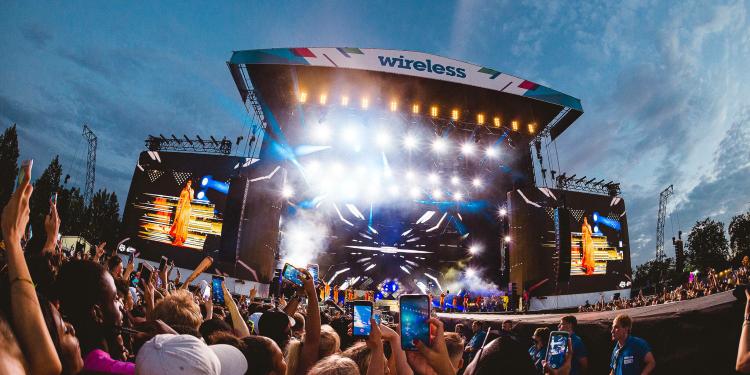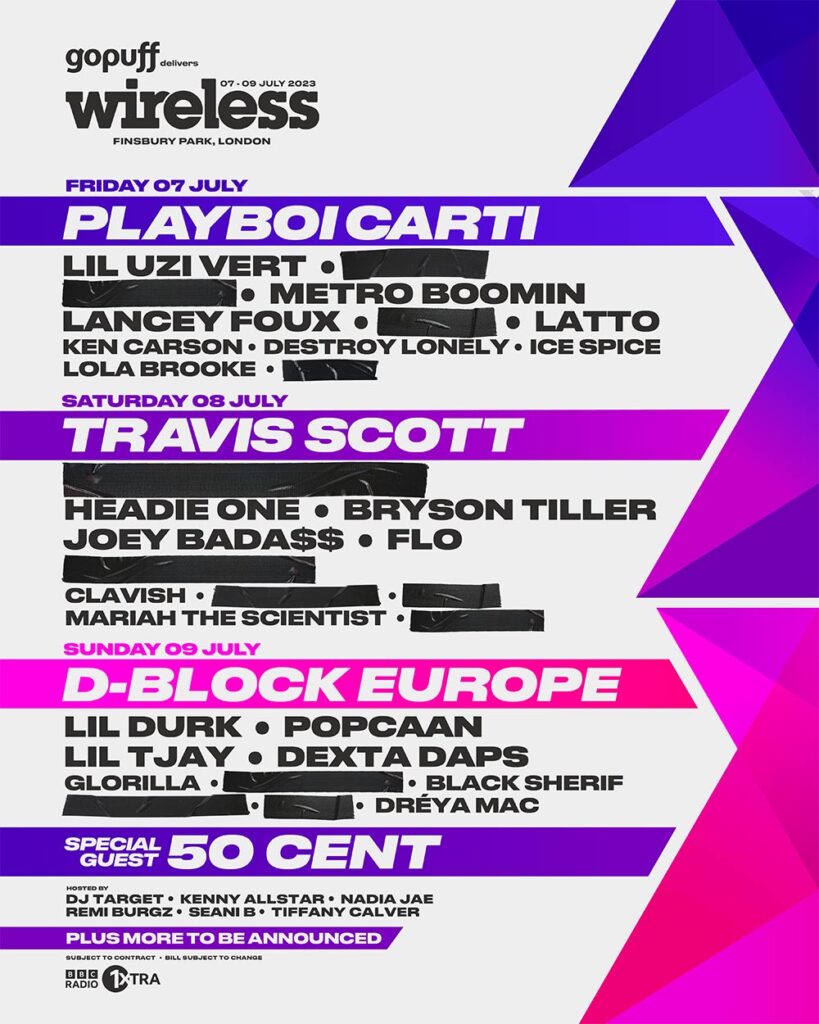In a recent development, Haringey Council has reached an agreement with Festival Republic, the event promoter, granting permission for the Wireless Festival to take place in Finsbury Park for the next five years, until 2027. This decision comes despite opposition from local groups who expressed concerns regarding the event. The council defends its decision by stating that the festival will generate substantial income for the park and boost the local economy.
The rap and urban music festival, known for attracting daily crowds of up to 50,000 people, has been a recurring annual event in the park since 2014, with exceptions made for 2020 and 2021 due to COVID-19 restrictions. Previously, the festival was approved on a yearly basis. While the council acknowledges that the new arrangement will result in a reduction of income, it asserts that the five-year deal will ensure ongoing funding for the park’s maintenance.

However, the Friends of Finsbury Park, a local group, opposed the decision, claiming that the extended permit would lead to reduced oversight of the events and fail to provide any benefits to local residents. The group expressed disappointment over the council’s failure to hold a promised public consultation on the matter, opting instead for a five-year agreement that seemingly disregards the lessons learned from previous events like the Tough Mudder.
The Friends of Finsbury Park added that the council’s primary focus appeared to be financial rather than cultural. They noted that despite budget constraints, Haringey Council had invested significantly in other parks throughout the borough. The group believes that alternative funding options for the park should have been explored, including potential partnerships with neighbouring local councils.
While the Friends of Finsbury Park supports smaller-scale events with fewer than 10,000 attendees, they argue that major events restrict residents’ access to the park and contribute to noise and antisocial behaviour. The Highbury Community Association also expressed objections during stakeholder consultations, echoing similar concerns and cautioning against potential deterioration in standards over the five-year period.

Labour councillor Alexandra Worrell, representing the Stroud Green ward, expressed her belief that events on the scale of Wireless were unsuitable for the park. She criticized the council for its lack of clarity, transparency, and communication regarding the utilization of funds generated by these events.
The council contends that the events held in Finsbury Park raise approximately £1.2 million annually, which is utilized to support the park’s maintenance team and fund improvements such as a new play area, air-quality monitoring stations, and an expanded skate park. They argue that restricting events to under 10,000 attendees would necessitate finding an additional £400,000 per year to sustain the park.
As part of the agreement, Festival Republic will also be granted permission to organize a second weekend of major events in the park each year. Additionally, two days of free community events are planned: Finsbury Fest, featuring local artists performing on the festival stage, and the Haringey Schools Music Festival, showcasing the borough’s young musicians. Councillor Peray Ahmet, the council leader, emphasized the significance of Finsbury Park as a thriving green space, expressing pride in its history of hosting renowned music events during the summer. She also highlighted the importance of these events in providing residents, especially young people, with affordable and sustainable access to world-class music and culture.
In response to concerns regarding the lack of a public consultation on major events, a council spokesperson clarified that the decision-making process involved engagement with recognized stakeholders, with their feedback evaluated prior to reaching a conclusion. The council maintains that its procedures for notifying and engaging with stakeholders have been deemed robust by the High Court in a 2016 judgment.




